
To be listed on the CAMPOSOL TODAY MAP please call +34 968 018 268.
article_detail
Spanish News Today Editors Roundup Weekly Bulletin July 26

TOP STORIES: "EU’s biometric passport control delayed once again" & "Body of missing Brit found in northern Spain"
We’re coming to the end of July, and the summer is almost halfway done already. But there have been far too many drownings and near-drownings on the beaches and at swimming pools, far too many incidents of people missing in the rugged Spanish countryside, far too many injured or killed in hotel and balcony accidents, and unfortunately we have to bring you more news about these terrible occurrences in this week’s Bulletin. But don’t worry, there’s plenty of good news to share too.
To begin with, though, we’re looking ahead to autumn/winter already, and the start (?!) of the new high-tech passport control system being brought in for Europe:
Will the Entry/Exit System ever enter?

The EU’s much-anticipated Entry/Exit System (EES) has hit another snag, pushing back its launch date once again, this time to November 10, 2024.
Originally set for October 6, this is just the latest in a series of delays since its first planned roll-out in 2021. The exact reasons for this latest hold-up are essentially that EU member states simply need more time to get their act together.
The EES aims to bid farewell to old-school passport stamping and say hello to fancy biometric data collection – fingerprint scanning, facial recognition, automatic passport control and so on.
This new digital system is set to streamline the whole entry and exit process for non-EU citizens visiting the Schengen Area for short stays, storing their info in a database for three years to avoid repetitive check-ins.
Despite the flashy new tech, the transition hasn’t been smooth. Spanish and European airports have been hustling to install the necessary equipment at their border controls, but it seems like they still need more time to make the switchover from manual checks.
Smaller airports, in particular, are struggling to get up to speed, and several have raised the alarm about not being ready in time, which probably played a big role in the decision to delay the launch.
To help smooth things out, the EES will roll out alongside a handy app designed to make the registration process easier. The app is designed to let travellers pre-register their data online, potentially cutting down on those dreaded queues at the border.
However, the app still needs to be thoroughly tested in multiple languages and with real users before it can be fully operational. While EU officials are hopeful, UK reps are a bit more sceptical, predicting the app won’t be ready until the summer of 2025.
This delay with the EES also spells trouble for the European Travel Information and Authorisation System (ETIAS), a new visa waiver for non-Schengen visitors. ETIAS was supposed to launch six months after the EES, but with the latest postponement, it’s likely that ETIAS will also be pushed back, making mid-2025 a more realistic target for its debut.
In the meantime, airports across the EU (as well as sea ports and land borders such as the one in Gibraltar) are gearing up for the EES with the hope that this delay will be the last. The goal is to have everything running smoothly so that by the time the system is finally live, the usual chaos at the borders will be a thing of the past.
So, while we wait for November 2024 (fingers crossed!), travellers should keep an eye out for updates and maybe start practising their best fingerprint poses.
Is it a jellyfish? Is it a plastic bag? No, it’s a salp!
This summer, Spain is facing an unusual beach invasion. No, it’s not sunbathers or tourists, but tiny, translucent creatures called salps that are making their presence known on Mediterranean shores.
These jellyfish-like animals, resembling small, water-filled plastic bags, are typically found in warm, tropical waters, making their presence on Spanish beaches a bit of a mystery.
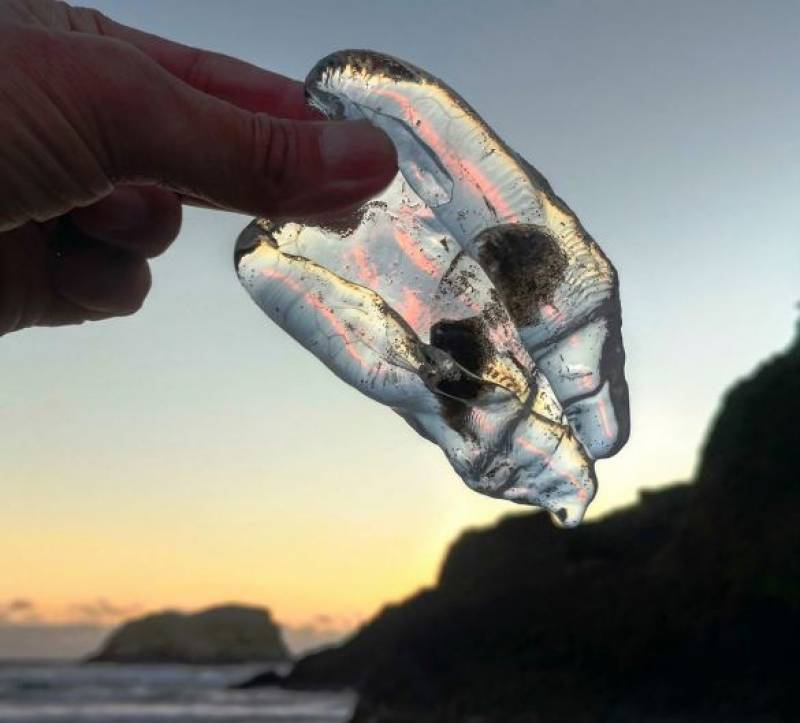 Salps belong to a group known as tunicate grazers, which play a crucial role in the ocean’s ecosystem. By feeding on algae, they control algal blooms and contribute to the reduction of greenhouse gases, as revealed by a study published in the journal Nature.
Salps belong to a group known as tunicate grazers, which play a crucial role in the ocean’s ecosystem. By feeding on algae, they control algal blooms and contribute to the reduction of greenhouse gases, as revealed by a study published in the journal Nature.In fact, the presence of salps can increase the carbon absorption process by up to eight times, making them beneficial allies in the fight against climate change.
But why have they chosen Spanish beaches as their temporary home?
One theory suggests that ocean currents, unusual wind patterns or changes in water temperature may have pushed them closer to shore. It is also possible that a natural bloom of salps, a rapid increase in their population, could be responsible for their sudden appearance.
Although salps are not harmful to humans, their presence in large numbers can disrupt the balance of the marine food chain. Additionally, the decomposition of large numbers of salps can lead to oxygen depletion in the water, creating potential issues for marine life.
For beachgoers, another immediate concern is the smell associated with salps. These slimy invaders can emit a distinct odour, which is less than pleasant for those trying to enjoy a relaxing day by the sea.
However, the good news is that salps don’t overstay their welcome. The tides that bring them onto the beaches quickly drag them back out to sea, ensuring their impact on the environment remains temporary.
Body of missing Brit found in northern Spain
 In a tragic turn of events, the body of a 48-year-old British man, Steven Michael B., was discovered in the bell tower of a village church in northern Spain. Steven’s disappearance on July 11 after an argument with his wife sparked an extensive search operation involving mountain specialists, drones and divers.
In a tragic turn of events, the body of a 48-year-old British man, Steven Michael B., was discovered in the bell tower of a village church in northern Spain. Steven’s disappearance on July 11 after an argument with his wife sparked an extensive search operation involving mountain specialists, drones and divers.His body was found in the municipality of Cremenes, in the autonomous community of Castilla y León. He is the fourth Briton to be reported missing in Spain in recent weeks.
The search operation began on July 11 after his wife reported him missing. Spain’s National Missing Persons Centre (CNDES) quickly released a photo of Steven, though they only partially identified him at the time.
Mountain specialists from the Guardia Civil’s Greim unit, who were also involved in the search for Jay Slater in Tenerife, were deployed. Their efforts were supported by drones, a helicopter and a trained sniffer dog.
The search concentrated on the banks of the Esla River, a tributary of the Duero River, and the nearby mountainous areas before police divers began to search the river itself.
According to local mayor Manuel Valbuena, nobody else is being sought in connection with the man’s death and everything points to poor Steven’s death being either a terrible accident or of his own design.
In a country with almost half a million British residents and countless other non-resident visitors and second home owners, such incidents involving Brits in Spain are statistically likely, but nonetheless tragic. And there are just too many missing persons cases and deaths of late.
Murcia
Do you want the good news first or more bad news? We’ll start with the bad and then get better.
In a grim statistic revealed by the Region of Murcia government this week, it turns out that the number of drownings in the Region’s pools and on the beaches so far in 2024 has already surpassed the total for the whole of last year.
By July 2023, just four drowning incidents had been recorded, with the annual total reaching eight. However, this year has seen a significant increase, with 26 emergency situations related to accidents in swimming pools and on beaches.
Sixteen of these cases required hospitalisation, while 10 sadly resulted in fatalities. Most of these incidents occurred in the sea, with the latest tragedy involving an 80-year-old woman who drowned while swimming at Playa de la Bahía beach in Puerto de Mazarrón.
Lifeguards performed CPR, but sadly, she could not be revived. Her daughter, present during the incident, required medical treatment for an anxiety attack.
It can never be repeated too much – please take extra special care when swimming, and always go along with a buddy just in case, especially where young children or the elderly are concerned.
And now to the good news on the beaches: an endangered loggerhead turtle laid 101 eggs at La Manga del Mar Menor this week, marking the first turtle nesting of the year in Murcia.
 It follows a failed nesting attempt a month earlier and comes shortly after another successful nesting in Torrevieja (about which more below). In fact, the more than 100 eggs laid in this La Manga clutch is about double the number that have been laid in recent nestings in the are.
It follows a failed nesting attempt a month earlier and comes shortly after another successful nesting in Torrevieja (about which more below). In fact, the more than 100 eggs laid in this La Manga clutch is about double the number that have been laid in recent nestings in the are.La Manga’s turtle was spotted by Jesús Sánchez, an environmental officer who happened to be on holiday at the time and was looking over his balcony in the early hours of the morning to witness the egg-laying.
He promptly called the necessary authorities to secure the area and ensure the turtle could lay its eggs undisturbed. Most of the eggs were later moved to a quieter location, away from the busy beachgoing crowd, and 10 of them were sent to the El Valle Wildlife Recovery Centre for protection and to help them to hatch.
These eggs are expected to hatch by mid-September, adding to the 125 loggerhead hatchlings recorded in Murcia since 2019, of which 118 have been successfully reintroduced to the wild.
Conservation efforts to protect loggerhead turtle populations are important as these animals are especially sensitive to light and disturbances when they come ashore to lay eggs. In the past some of them have been watched at a close distance or even touched by curious humans, prompting them to abandon nesting and go back out to sea.
Experts advise that, if you do come across a turtle or even spot the tracks of one, to call the emergency services. At all costs, avoid shining lights at the turtles and maintain a distance of at least 20 metres.
The increase in nesting on this slice of the Mediterranean coast is really positive news for the species, and 20 young turtle hatchlings have recently been released back into the wild and fitted with GPS geolocation transmitters to study their migratory patterns.
 Meanwhile, Murcia is also set to play a significant role in the 2030 World Cup, with several sports resorts chosen as official training bases. The DoubleTree by Hilton at La Torre Golf Resort, Pinatar Arena, Grand Hyatt La Manga Club and the soon-to-be-completed Alhama Arena will all serve as sub-venues for the World Cup.
Meanwhile, Murcia is also set to play a significant role in the 2030 World Cup, with several sports resorts chosen as official training bases. The DoubleTree by Hilton at La Torre Golf Resort, Pinatar Arena, Grand Hyatt La Manga Club and the soon-to-be-completed Alhama Arena will all serve as sub-venues for the World Cup.The selection was announced by the Royal Federation of Spanish Football (RFEF), highlighting Murcia’s excellent sporting facilities. The DoubleTree by Hilton at La Torre Golf Resort offers high-quality turf pitches and extensive football training facilities, managed by the nearby Pinatar Arena, while the Alhama Arena sports complex, which is scheduled for completion in 2025, will feature multiple training fields and a stadium with a capacity for 3,500 spectators.
La Manga Club, with its extensive facilities and 5-star Grand Hyatt Hotel, boasts eight FIFA-standard natural grass pitches and has previously hosted top-level teams, including national squads from Spain and England.
The 2030 World Cup will be jointly hosted by Spain, Morocco, and Portugal, with Spain providing eleven venues. These facilities will undergo evaluation by FIFA, and the final selection will be made by the football associations of the qualifying countries.
If you’re looking for something to do in the next few days other than lounge around (carefully) at the beach and by the pool, then you might like to know that this is the final weekend you can catch the Lo Ferro Flamenco festival near Roldán, or you can enjoy a guided visit in English to discover the world of the Neanderthals at Cabezo Gordo in Torre Pacheco this Saturday. On Sunday July 28, you can go and see ‘Goodbye Stranger’ in Puerto de Mazarrón, a free open-air musical drama that promises to be a real spectacle, or go along and dance at the Los Narejos Summer Carnival parade and party, which is taking place on Sunday night in Los Alcázares.
See our EVENTS DIARY for more ideas of what to do in the Region of Murcia:
Spain
Mosquitoes are a guaranteed annoyance in Spain during the summer season, and it will come as no surprise that some people are more susceptible to their bites than others. But why is that?
A recent study found that carboxylic acids, such as butyric acid, which is produced by bacteria on our skin and gives off that distinct aged-cheese aroma, proves irresistible to mosquitoes.
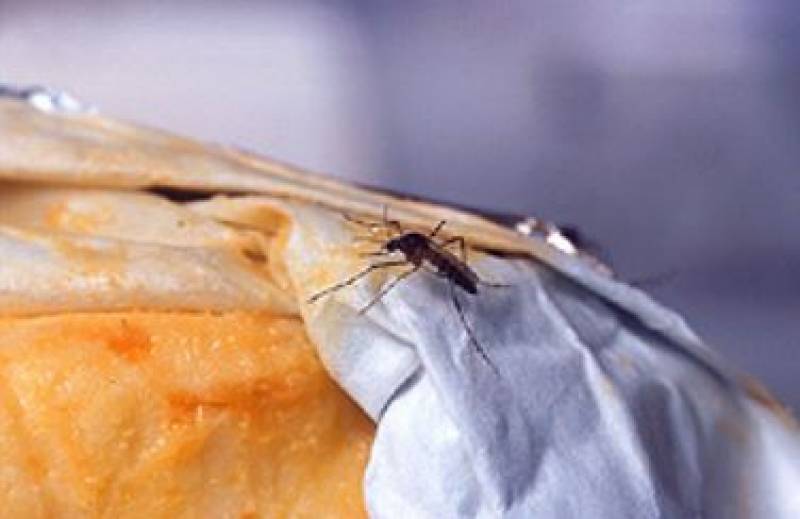 Don’t worry, you don’t smell cheesy to your friends, but to mosquitoes you might as well be a delicious snack.
Don’t worry, you don’t smell cheesy to your friends, but to mosquitoes you might as well be a delicious snack.It’s not just about the cheese, though. Mosquitoes are also drawn to individuals with higher body temperatures, such as those with more superficial capillaries or light skin. Physical activity and sweat increase the number of substances emitted by the body, making you even more appealing to these tiny predators.
Another factor to consider is alcohol consumption. When you drink, your body emits more acetone, ethanol and methanol through sweat, making you a prime target for mosquitoes.
Finally, while blood type may play a role in mosquito attraction, it is not as significant as other factors such as body odour, carbon dioxide emission and heat.
Unfortunately, the summer months in Spain have also been marked by some more tragic incidents and disappearances.
In the popular tourist destination of Puerto de Alcudia, Mallorca, an 11-year-old Irish girl fell to her death from a hotel balcony while her family slept just meters away.
The horrific accident occurred at around 6.30am on Monday July 22. The youngster was staying at the three-star Club Mac, an all-inclusive, family-friendly hotel in the northeast of the island.
According to local sources, the girl fell around 65 feet from the balcony to the roof a restaurant on the first floor.
It would seem that the girl went out onto the balcony by herself while her family were still sleeping inside.
On a much-needed positive note, trainee barrister Ben Ross, who went missing without a trace in Mallorca for 12 days, was found safe and (relatively) well on that same Monday. He turned up at the British consulate in Palma, dehydrated and exhausted, and was finally reunited with his incredibly relieved mother.

Ross had moved to the sun-soaked island in June for a break from his law studies, but a series of unfortunate events led to his disappearance.
Ben’s mum Felix flew to Spain last week, determined to find her son. Her fears were heightened by a peculiar email from Ben, indicating a decline in his mental state after the beach robbery and a falling out with flatmates.
The young man’s troubles began when his wallet, iPad, passport and keys were stolen while he took a dip in the sea. This was followed by a falling out with flatmates, further impacting his mental health. Social media appeals and police involvement failed to locate him, until he was finally found at the consulate.
Concerned friend Carla Speight updated the GoFundMe page on Monday afternoon, confirming that the missing Brit had finally been reunited with his “incredibly relieved” mum.
Carla wrote: “Ben has been FOUND!”
“Today Ben was at the British Consulate in Palma Mallorca and met with Felix who is incredibly relieved at the sight of her son and being able to hug him."
"For now, Felix and her family are requesting some privacy whilst they get Ben back to full strength and home, and they want to extend their thanks to the press, media and public for all their support in finding him.
“They now have the task of arranging an emergency passport alongside making sure he is well enough to fly home following treatment for dehydration and exhaustion.”
Alicante
As promised, more turtle news, this time on the Costa Blanca, which played host to another remarkable nesting event this week when a couple of Belgian tourists stumbled upon an endangered loggerhead turtle coming ashore to lay her eggs during a moonlit stroll on La Mata beach in Torrevieja.
This rare occurrence marked the fifth hatching of 2024 in all of Spain and the very first in the bustling holiday hub of Torrevieja.
The quick-thinking couple alerted nearby Pura Vida beach bar, who initiated the loggerhead turtle nesting protocol by contacting emergency services. Local police and experts, including a municipal biologist, rushed to the scene to ensure the safety of the mum-to-be and her eggs.
In total, 63 eggs were laid, with 57 remaining on La Mata beach and 6 carefully incubated by experts. The entire operation, lasting from 1am to 12 noon, was a true community effort, with volunteers now monitoring the nest around the clock to ensure the safety of this precious cargo.
It is expected that hatchlings will emerge in around 50 to 70 days, depending on sand temperatures.
While nature offered a heart-warming surprise on the Costa Blanca, a British retiree in the quiet town of Rojales encountered a different kind of surprise – a scam that robbed him of his life savings.
The 91-year-old man welcomed a carer into his home, only to have his bank accounts cleared out.
Thankfully, the Alicante Guardia Civil arrested the 64-year-old Spanish woman accused of defrauding more than 50,000 euros from the elderly victim.
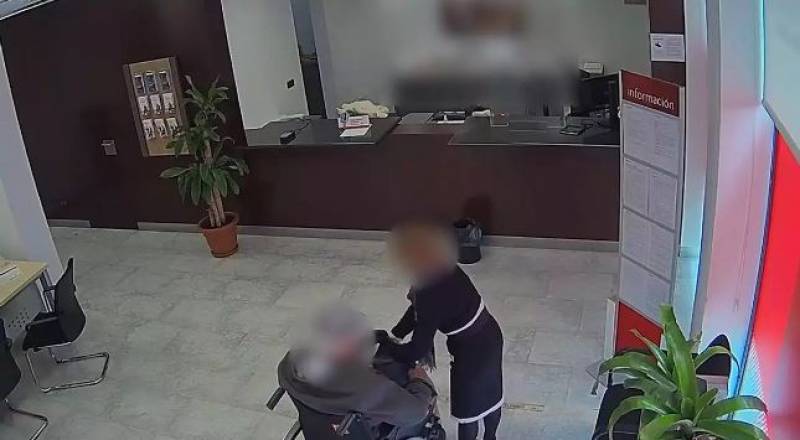
The elderly victim heard alarm bells when he received notifications that his account balance was running low. When he began missing bill payment dates and had to resort to asking his son for money to cover his basic living costs, the Briton went to the Police. At the time, he told them that he should have at least 50k in his savings account.
Officers from the Almoradí station launched an investigation, and immediately noticed a number of large withdrawals and other suspicious payments that the victim swore he never made. Police quickly zeroed in on the man’s last caregiver, who had worked in his house for a year and a half as a home help.
As the summer kicks into high gear, the local council in Alicante is also preparing a host of new rules to regulate tourist accommodation. These changes aim to improve security and put an end to unlicenced rentals, particularly in residential buildings.
 One notable change is the upcoming ban on key boxes. These automatic mini-safes are widely used to store keys when a landlord can’t be there to welcome guests. Instead, the keys are left in the lock box and the arriving tourists are provided with the code.
One notable change is the upcoming ban on key boxes. These automatic mini-safes are widely used to store keys when a landlord can’t be there to welcome guests. Instead, the keys are left in the lock box and the arriving tourists are provided with the code.But, according to local Minister for Tourism Nuria Montes, these key boxes are a glaring advertisement for burglars that the property is a rental, increasing the chances of break-ins.
Going forward, landlords or their representatives will have to provide a face-to-face meet and greet service to personally hand over the keys to customers.
The council also plans to enforce existing rules, such as the requirement to notify the National Police and Guardia Civil about guests over the age of 16, and the use of butane cylinders in short-term rentals will be prohibited to prevent accidents.
These measures aim to cut down on illegal tourist accommodation and enhance the safety of both tourists and residents, according to the local council.
Andalucía
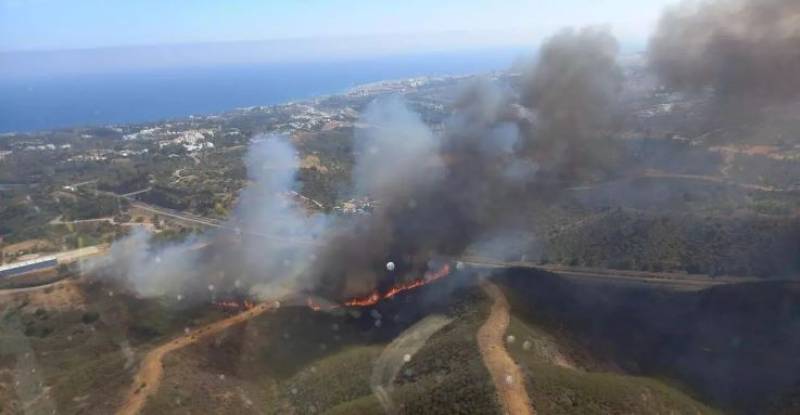 In Andalucía this week, the first major wildfires of the summer have struck Málaga province. The first was on Monday afternoon, as temperatures soared into the 40s, in the Nagüeles area. It took four hours and around 100 firefighters stationed on the ground to extinguish, supported by 14 aircraft dousing the flames from above.
In Andalucía this week, the first major wildfires of the summer have struck Málaga province. The first was on Monday afternoon, as temperatures soared into the 40s, in the Nagüeles area. It took four hours and around 100 firefighters stationed on the ground to extinguish, supported by 14 aircraft dousing the flames from above.Despite the challenging terrain and gusty winds, the firefighters managed to control the fire before nightfall. The emergency services reported numerous calls from concerned motorists as the fire neared the AP-7 motorway, but fortunately, the road remained open, and no evacuations were necessary.
Just a day later, another wildfire burned up a further 25 hectares of rural land in Caseres, also in Málaga. As the summer wears on, we can expect to have more forest fires like these, which are an inevitable part of the dry season in Spain. We just have to hope that none of them are too destructive, too fierce.
In Seville, the sweltering summer heat has prompted the city council to take measures to protect carriage horses. The horse-drawn carriages are a popular tourist attraction in Seville city, but as temperatures exceed 40ºC the council has issued guidelines for coach drivers to avoid working their animals during the hottest part of the day and to ensure they receive frequent rest breaks.
These guidelines, part of a new good practices guide, recommend removing horse and carriages from the streets when temperatures surpass 38ºC between 2.30pm and 7.30pm. Additionally, the guide advises that horses should work no more than eight hours a day, with mandatory breaks every two hours and one day off per week for those aged between 4 and 18 years.
Older horses should only work a maximum of three days per week and receive an annual rest of four to five weeks. Seville council has even established rest points with shade, water and grooming facilities to provide additional care for the animals.
In Mojácar, Almería, a 35-year-old British man was found dead under mysterious circumstances late last Sunday night. The Guardia Civil discovered the body in the town of Ventanicas-El Cantal in Mojácar Playa, surrounded by blood splashed up the walls and with a massive bloody injury on his forehead.
The investigation revealed that the man had been dead for several hours. The police have not yet disclosed further details or possible motives, but for now they are treating it as an accident, suspecting that he may have fallen on his face suddenly.
Over in Vera, also in Almería, the Ayuntamiento has launched an environmental campaign called ‘Mi Playa Bonica’ to encourage beachgoers to keep the beaches clean.
Participants can collect rubbish from the beaches and exchange it for gifts at an ‘ecomarket’ set up by the seaside. The campaign also features exhibitions of artwork made from recycled materials and a museum highlighting the issue of marine litter.
The aim is to raise awareness about the importance of maintaining clean beaches, which benefits both the environment and beach visitors. By collecting litter, participants not only contribute to environmental conservation but also receive a free gift as a reward for their efforts!
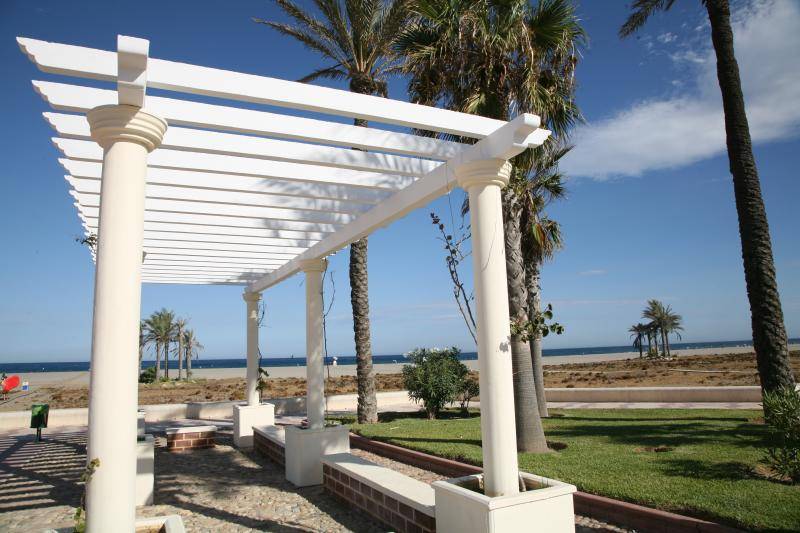
You may have missed…
- These are the beaches in Murcia that could disappear within a decade.
A number of coastal areas in the Region of Murcia are at risk of being lost to the sea due to overconstruction, pollution, the building of artificial barriers and the climate crisis, according to a new Greenpeace report. - British sailboat sinks in killer whale attack off Spain.
A crew of three British sailors was rescued off the coast of Gibraltar after their yacht, the Bonhomme William, was brutally attacked by a pod of five killer whales, or orcas, and sank between the southern Spanish towns of Tarifa and Barbate. - UK tourist collapses and dies while waiting for a flight home from Spain.
A British man in his 60s collapsed and died in the boarding area at Reus Airport on his way home to Leeds from holiday in Spain. - Package holidays with direct flights from Corvera Airport planned for December.
We’re barely getting our heads around the fact that summer is here, but tour operators in Murcia are already planning organised trips to international locations around the time of the ‘puente de diciembre’ long weekend in December 2024. - We Love You: Mallorca residents share the love amid anti-tourism protests.
As protests against overcrowding and a lack of long-term housing echo through Spain, a group of residents in Mallorca has taken a different approach, launching a platform called “We Love Tourism Mallorca” to express their gratitude to visitors and send a message of appreciation to holidaymakers.
And that’s all we’ve got for you this week. As ever, thanks for reading – your support is much appreciated.
See you next time!
Contact Murcia Today: Editorial 000 000 000 /
Office 000 000 000

























